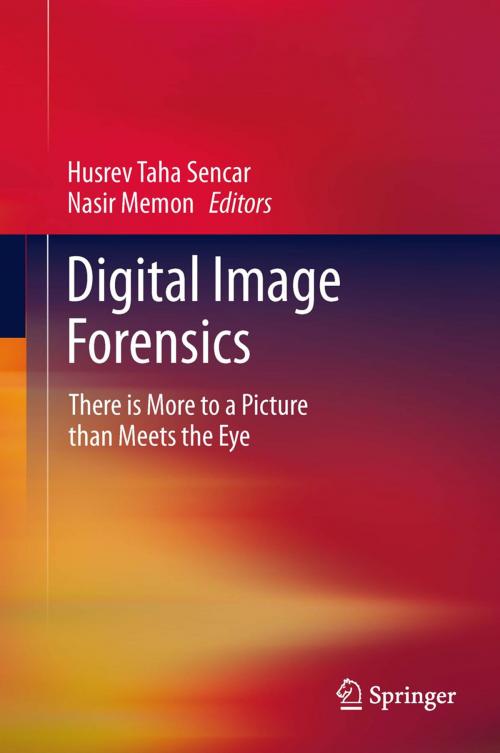Digital Image Forensics
There is More to a Picture than Meets the Eye
Nonfiction, Computers, Advanced Computing, Engineering, Computer Vision, Science & Nature, Technology, Electronics| Author: | ISBN: | 9781461407577 | |
| Publisher: | Springer New York | Publication: | August 1, 2012 |
| Imprint: | Springer | Language: | English |
| Author: | |
| ISBN: | 9781461407577 |
| Publisher: | Springer New York |
| Publication: | August 1, 2012 |
| Imprint: | Springer |
| Language: | English |
Photographic imagery has come a long way from the pinhole cameras of the nineteenth century. Digital imagery, and its applications, develops in tandem with contemporary society’s sophisticated literacy of this subtle medium. This book examines the ways in which digital images have become ever more ubiquitous as legal and medical evidence, just as they have become our primary source of news and have replaced paper-based financial documentation.
Crucially, the contributions also analyze the very profound problems which have arisen alongside the digital image, issues of veracity and progeny that demand systematic and detailed response: It looks real, but is it? What camera captured it? Has it been doctored or subtly altered? Attempting to provide answers to these slippery issues, the book covers how digital images are created, processed and stored before moving on to set out the latest techniques for forensically examining images, and finally addressing practical issues such as courtroom admissibility. In an environment where even novice users can alter digital media, this authoritative publication will do much so stabilize public trust in these real, yet vastly flexible, images of the world around us.
Photographic imagery has come a long way from the pinhole cameras of the nineteenth century. Digital imagery, and its applications, develops in tandem with contemporary society’s sophisticated literacy of this subtle medium. This book examines the ways in which digital images have become ever more ubiquitous as legal and medical evidence, just as they have become our primary source of news and have replaced paper-based financial documentation.
Crucially, the contributions also analyze the very profound problems which have arisen alongside the digital image, issues of veracity and progeny that demand systematic and detailed response: It looks real, but is it? What camera captured it? Has it been doctored or subtly altered? Attempting to provide answers to these slippery issues, the book covers how digital images are created, processed and stored before moving on to set out the latest techniques for forensically examining images, and finally addressing practical issues such as courtroom admissibility. In an environment where even novice users can alter digital media, this authoritative publication will do much so stabilize public trust in these real, yet vastly flexible, images of the world around us.















